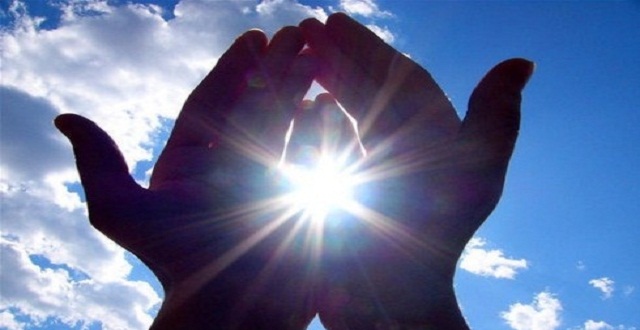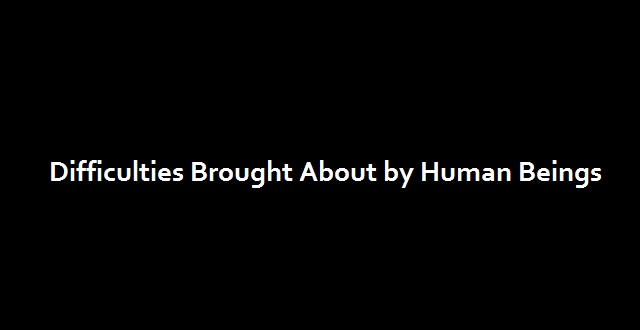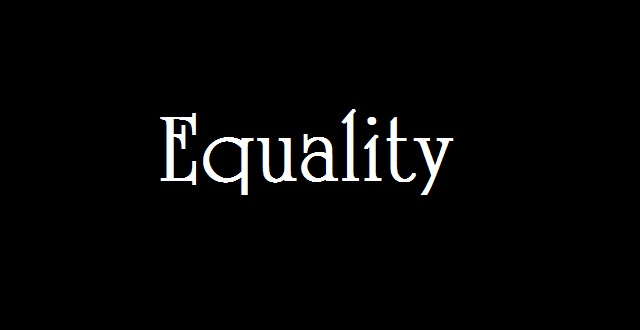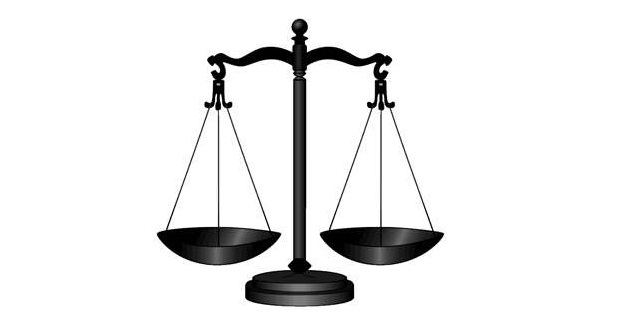
1. Goodness and Evil
We have learned – and it seems that this issue is necessary – that out intellect distinguish between good and evil to a certain extent. (This is that very thing which scholars speak about in ethical terms: “Goodness” and “Evil.”)
For instance, we know that justice and goodness are good and oppression and stinginess are evil. Before religion even mentioned these things, it was clear to us. However, there are other issues which exist which our intelligence is not sufficient to understand and we must seek guidance from Divine Leaders and the Prophets.
Thus, if a group of Muslims like the Ash’arites, deny intellectual goodness and evil and the way of distinguishing between good and evil, then they are completely wrong.
For, if our intellect does not have the ability to choose between good and evil, how would we know whether God would send His message through false prophets or not? However, the moment we say God would lie, we know that God’s Promises are always true and that He is always truthful. He would never encourage deceit and never give miracles into the hands of a deceitful person. It is here that we can rely upon what religion and the Divine Law says.
Thus, we can conclude that the belief in intellectual good and evil is from religion. (Note this with care). Now, let us return to the proof of Divine Justice. In order to understand this, we must know:
2. The Sources of Oppression
The source of oppression is one of the following things:
• Ignorance: It sometimes happens that an oppressive person does not, in truth, know what he is doing. He does not know that he is destroying someone’s rights and he is not aware of what he is doing.
• Need: Sometimes a person is tempted to commit a satanic act in order to attain something that another has, whereas if he were self-sufficient, he would have no need to commit oppression.
• Inability: Sometimes a person is not willing to have the rights of another curtailed but he does not have the power or ability to do anything about it. So, unwillingly, he commits oppression.
• Selfishness, Bearing Grudges and Seeking Revenge: Sometimes none of the above-stated qualities exist; however, selfishness or a sense of seeking revenge or bearing a grudge makes that person commit oppression against another. Sometimes, the spirit of exclusiveness and monopolization causes injustice to others.
Note that none of these ugly qualities and deficiencies exist in God, for He is The All-Knowing, The Needless, The All-Powerful and The Most Kind. It makes no sense for God to commit oppression. He is a Being who is Endless, Perfect and Unlimited. Only Goodness, Justice and Mercy can stem from such a Being.
If he punishes those who commit evil, in reality, it is the result of their deeds which causes this, just like a person who, as a result of the use of narcotics or alcohol, is afflicted with an incurable disease. The Holy Qur’an says:
“You receive but the recompense of what you have earned.” (Surah Yunus, 10:52).
3. The Qur’an and the Justice of the Creator
It is important to note that the Holy Qur’an greatly emphasizes God’s Justice:
“Verily God will not deal unjustly with man in aught: it is man that wrongs his own soul.” (Surah Yunus, 10:44).
And in another place, it says:
“God is never unjust in the least degree.” (Surah An-Nisa, 4:40).
And,
“We shall set up scales of justice for the Day of Judgement so that not a soul will be dealt with unjustly in the least.” (Surah Al-Anbiya, 21:47).
Note, what is meant by “balance” in the above verse, is the method of weighing good and evil, not like scales of this world.
4. Invitation to Justice and Equity
The qualities of the human being must be like a ray of God’s qualities and in human society, God’s qualities are widespread. According to this principle, to the same extent that the Holy Qur’an stresses the Justice of the Creator, He has also stressed justice and equity in human society and the individuality of individuals.
The Holy Qur’an says that oppression and injustice will destroy society and that the fate of oppressors is of the most painful kind. In addition to mentioning the fate of past tribes, the Holy Qur’an has often repeated this truth for people to see the result of oppression and corruption and what punishment will be given. The Holy Qur’an clearly states as a principle:
“God commands justice, the doing of good and kindness to family members and He Forbids all shameful deeds and injustice and rebellion….” (Surah An-Nahl, 16:90).
It should be noted that committing oppression is an ugly act, to accept oppression and suffer suppression is also wrong according to Islam and the Holy Qur’an:
“Deal not unjustly and you shall not be dealt with unjustly.” (Surah Baqarah, 2:279).
In general, submission to inequity encourages oppression, increase suppression and aids oppressors.










